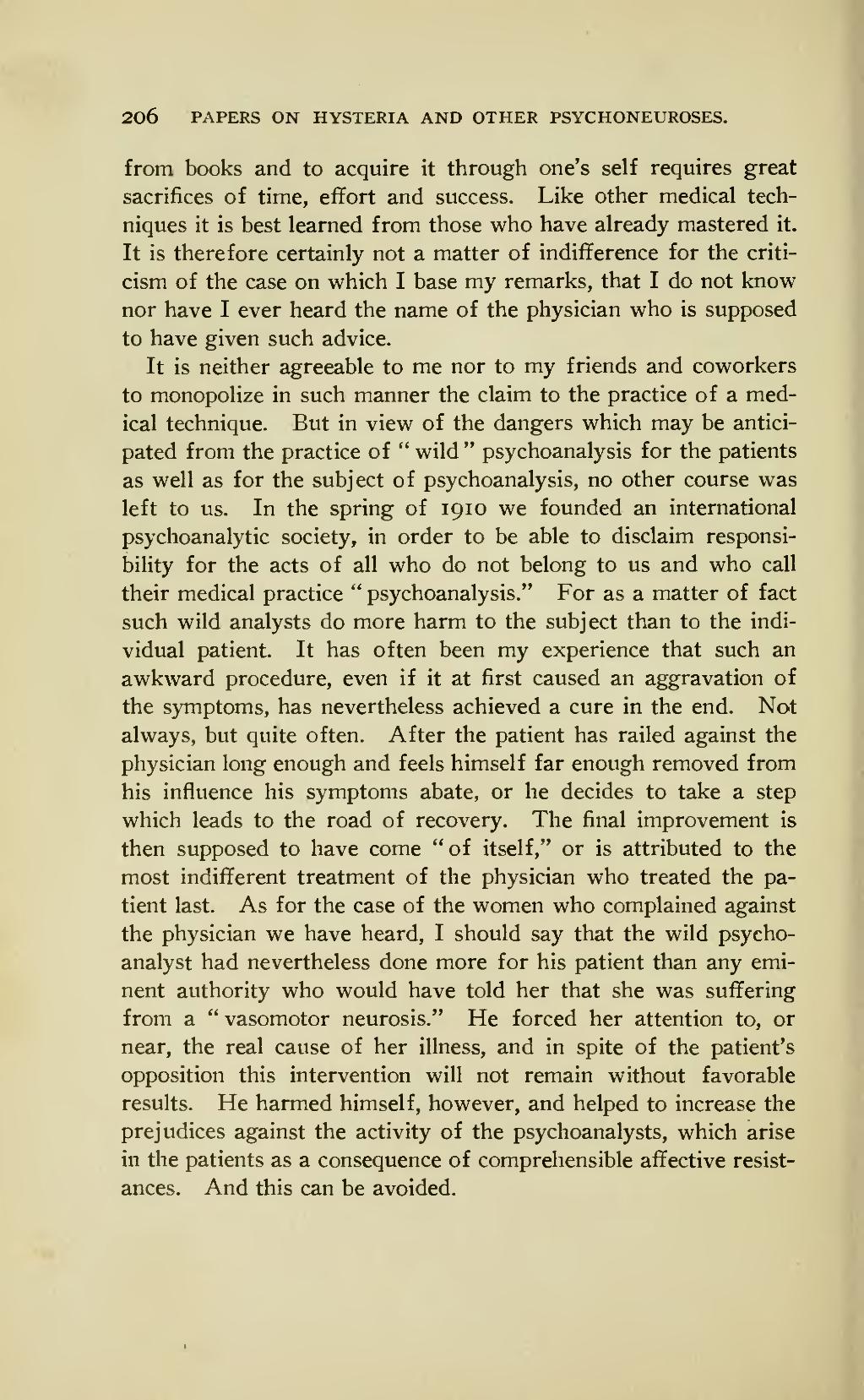from books and to acquire it through one's self requires great sacrifices of time, effort and success. Like other medical techniques it is best learned from those who have already mastered it. It is therefore certainly not a matter of indifference for the criticism of the case on which I base my remarks, that I do not know nor have I ever heard the name of the physician who is supposed to have given such advice.
It is neither agreeable to me nor to my friends and coworkers to monopolize in such manner the claim to the practice of a medical technique. But in view of the dangers which may be anticipated from the practice of "wild" psychoanalysis for the patients as well as for the subject of psychoanalysis, no other course was left to us. In the spring of 1910 we founded an international psychoanalytic society, in order to be able to disclaim responsibility for the acts of all who do not belong to us and who call their medical practice "psychoanalysis." For as a matter of fact such wild analysts do more harm to the subject than to the individual patient. It has often been my experience that such an awkward procedure, even if it at first caused an aggravation of the symptoms, has nevertheless achieved a cure in the end. Not always, but quite often. After the patient has railed against the physician long enough and feels himself far enough removed from his influence his symptoms abate, or he decides to take a step which leads to the road of recovery. The final improvement is then supposed to have come "of itself," or is attributed to the most indifferent treatment of the physician who treated the patient last. As for the case of the women who complained against the physician we have heard, I should say that the wild psycho-analyst had nevertheless done more for his patient than any eminent authority who would have told her that she was suffering from a "vasomotor neurosis." He forced her attention to, or near, the real cause of her illness, and in spite of the patient's opposition this intervention will not remain without favorable results. He harmed himself, however, and helped to increase the prejudices against the activity of the psychoanalysts, which arise in the patients as a consequence of comprehensible affective resistances. And this can be avoided.
